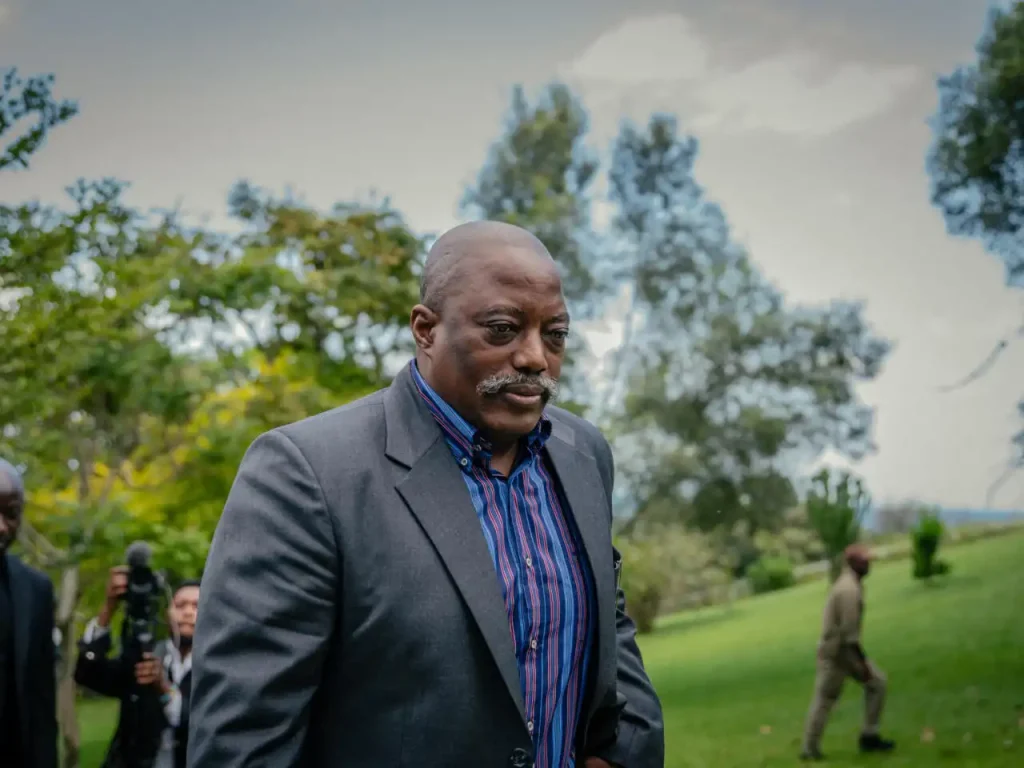A military court in Kinshasa’s Gombe district began the trial of former Democratic Republic of Congo (DRC) President Joseph Kabila, on July 25, 2025.
He faces serious charges, including plotting to overthrow President Felix Tshisekedi’s government—a crime that could lead to the death penalty.
Other accusations include homicide, torture, rape, and leading an insurrection linked to the M23 rebel group, as well as the illegal occupation of Goma.
Kabila Rejects Charges
Kabila, who returned to Goma in May 2025 after two years in South Africa, denies all allegations. He chose not to attend the hearing and requested a trial in absentia.
Prosecutors claim he helped form the Congo River Alliance (AFC), the political wing of M23, and worked with Rwanda to destabilize the DRC. Kabila, who led the DRC from 2001 to 2019, calls the trial “unfair” and accuses the judiciary of being a tool of oppression.
Claims of a Political Plot
Emmanuel Shadari, from Kabila’s People’s Party for Reconstruction and Democracy (PPRD), labeled the trial a “political stunt” meant to divide Congolese people during peace talks.
“This isn’t justice—it’s a scripted conviction,” Shadari said. The DRC Senate removed Kabila’s senatorial immunity to allow the trial, fueling accusations of bias.
Deputy Justice Minister Samuel Mbemba insisted the courts are independent, stating, “Justice will be served fairly.”
M23 and AFC Deny Ties
Leaders of M23 and the AFC, including executive secretary Benjamin Mbonimpa, denied any connection to Kabila.
“Living in Goma doesn’t make him one of us,” Mbonimpa said, calling the trial a “smear campaign” against the former president.
The M23 rebels, backed by Rwanda according to UN reports, have controlled parts of eastern DRC since their 2021 resurgence, despite a July 2025 ceasefire agreement with the government.
Eastern DRC’s Ongoing Conflict
The trial highlights the unrest in eastern DRC, particularly in mineral-rich areas like Goma, where M23 operates.
Rwanda denies supporting the rebels, but UN experts point to its significant role. The region has faced decades of violence from over 100 armed groups, making peace elusive.
Recent clashes, including M23 attacks in July 2025, have deepened the humanitarian crisis.
What’s Next for the Trial
The court adjourned the hearing to July 31, 2025, to allow prosecutors more time to review evidence. While the DRC ended its death penalty moratorium in 2024, no executions have taken place.
This high-profile case raises questions about justice, politics, and the DRC’s struggle to address rebellion and foreign influence in its volatile east.
UBEC Reaffirms Commitment to Reducing Out-of-School Children



















